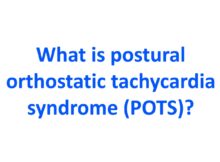Category: Heart Disease FAQ
Heart Disease FAQ
Major clogging of the arteries require mechanical methods of removal methods like angioplasty.
Read More
Heart Disease FAQ
Can you stop your heart by breath holding? Heart is not under voluntary control. So you cant stop it voluntarily.
Read More
Heart Disease FAQ
Nitroglycerine dilates blood vessels of the heart and relieves the pain due to angina pectoris.
Read More
Heart Disease FAQ
Devices generating electromagnetic forces should be at a safe distance from the pacemaker depending on the intensity of the field generated.
Read More
Heart Disease FAQ
Electrocardiogram (ECG) records the electrical activity of the heart. Most important role of an ECG is to confirm a heart attack.
Read More
Heart Disease FAQ
There are various causes for systolic murmur, some of which are serious while a large majority are innocent. Innocent murmurs do not require any treatment.
Read More
Heart Disease FAQ
Only those disorders which have produced an abnormality in the electrical activity of the heart can be detected on ECG.
Read More
Heart Disease FAQ
Persons on pacemaker can invariably do light walking. Those with a rate responsive or dual chamber physiological pacemaker can exercise as well.
Read More
Heart Disease FAQ
Heart rate increases in inspiration (breathing in) and decreases in expiration (breathing out). This change is known as respiratory sinus arrhythmia.
Read More
Heart Disease FAQ
Postural orthostatic tachycardia syndrome (POTS) is characterized by orthostatic tachycardia in the absence of orthostatic hypotension.
Read More
Posts navigation
